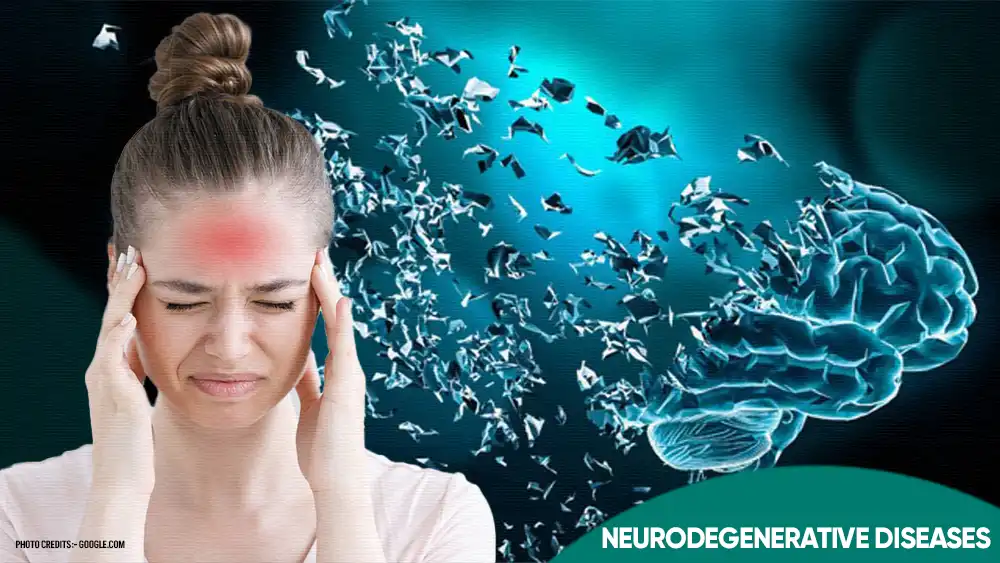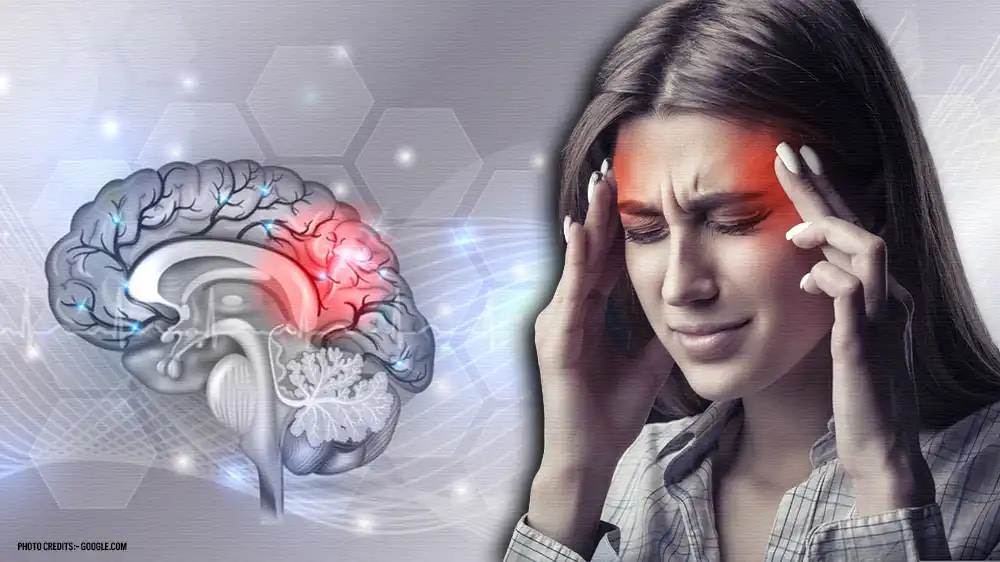
NEUROSCIENCE
Neurodegenerative Diseases: Symptoms, Causes, and Management
-
Rahul Priydarss
Explore the world of neurodegenerative diseases with our comprehensive guide. Learn about Alzheimer’s, Parkinson’s, ALS, and more—disorders impacting the nervous system, causing a progressive decline in cognitive and motor functions. Discover their causes, symptoms, diagnostic methods, and current treatments, including medications and therapeutic interventions. Understanding these diseases is crucial for early detection, effective management, and improving quality of life. Explore preventive measures, the latest research, and how societal awareness supports patients and families. Whether you’re seeking insights into genetic factors, environmental influences, or lifestyle choices, our article provides valuable information to navigate the complexities of neurodegenerative diseases and their impact on healthcare today.
Introduction to Neurodegenerative Diseases:
Neurodegenerative diseases are a group of disorders characterized by the progressive degeneration of the structure and function of the nervous system. These diseases primarily affect neurons, the building blocks of the nervous system responsible for transmitting signals throughout the body. As neurons deteriorate and die, individuals experience a decline in cognitive and motor functions, leading to a range of debilitating symptoms.
Understanding neurodegenerative diseases is crucial for early diagnosis and intervention, leading to improved outcomes and better symptom management. It facilitates the development of innovative therapies and personalized medicine, offering hope for new treatments. With an aging population, the prevalence of these diseases is rising, making it a significant public health issue that demands efficient healthcare resource allocation. Increased awareness reduces stigma and supports patients and their families, while knowledge aids in developing effective care strategies. Additionally, understanding risk factors can lead to preventive measures, and ongoing research contributes to scientific advancements. Overall, comprehending these diseases is vital for patient care, medical research, and addressing societal impacts.
What Are Neurodegenerative Diseases?:
Neurodegenerative diseases are a group of disorders characterized by the progressive degeneration of the nervous system, particularly neurons in the brain and spinal cord. This degeneration leads to a gradual loss of cognitive and motor functions, resulting in symptoms such as memory loss, movement problems, and cognitive decline. Examples of neurodegenerative diseases include Alzheimer’s disease, Parkinson’s disease, and amyotrophic lateral sclerosis (ALS).

Table of Contents
Types of Neurodegenerative Diseases:
Neurodegenerative diseases encompass a variety of disorders, each affecting different parts of the nervous system and presenting distinct symptoms. Here are some of the most common types.
Alzheimer’s Disease: The most common cause of dementia, is characterized by memory loss, confusion, and changes in behavior. Primarily affects the hippocampus and other parts of the brain involved in memory and cognition.
Parkinson’s Disease: A disorder that affects movement control, leading to tremors, stiffness, and slowness of movement (bradykinesia). Mainly impacts the substantia nigra, a part of the brain that produces dopamine.
Amyotrophic Lateral Sclerosis (ALS): Also known as Lou Gehrig’s disease, it causes the degeneration of motor neurons, leading to muscle weakness and atrophy. Affects motor neurons in the brain and spinal cord.
Huntington’s Disease: A genetic disorder causing the progressive breakdown of nerve cells in the brain, resulting in movement, cognitive, and psychiatric disorders. Affects the basal ganglia and cerebral cortex.
Multiple Sclerosis (MS): An autoimmune disease where the immune system attacks the protective sheath (myelin) of nerve fibers, causing communication problems between the brain and the rest of the body. Impacts the central nervous system, including the brain and spinal cord.
Frontotemporal Dementia (FTD): A group of disorders caused by progressive nerve cell loss in the brain’s frontal and temporal lobes, leading to personality changes, language difficulties, and impaired decision-making. Primarily affects the frontal and temporal lobes of the brain.
Lewy Body Dementia: Characterized by the presence of Lewy bodies, and abnormal protein deposits, in the brain, leading to symptoms of both Alzheimer’s and Parkinson’s disease, including cognitive decline, hallucinations, and movement problems. Affects various parts of the brain, including the cortex and substantia nigra.
Causes of Neurodegenerative Diseases:
Neurodegenerative diseases can arise from a combination of genetic, environmental, and lifestyle factors. Here are some key causes.
Genetic Mutations: Inherited genetic mutations can predispose individuals to certain neurodegenerative diseases, such as Huntington’s disease and some forms of familial Alzheimer’s disease and ALS.
Protein Misfolding and Aggregation: Abnormal folding and aggregation of proteins within neurons can lead to the formation of toxic protein clumps (e.g., beta-amyloid plaques in Alzheimer’s, alpha-synuclein in Parkinson’s), disrupting normal cellular function and contributing to neuronal damage.
Oxidative Stress: Accumulation of reactive oxygen species (free radicals) within neurons can damage cellular structures, including proteins, lipids, and DNA, contributing to neuronal dysfunction and death.
Inflammation: Chronic inflammation in the brain, often associated with autoimmune responses or infections, can contribute to neurodegeneration by activating immune cells that release toxic substances.
Mitochondrial Dysfunction: Impaired function of mitochondria, the energy-producing organelles within cells, can lead to energy deficits and oxidative stress, contributing to neuronal damage and death.
Environmental Factors: Exposure to certain environmental toxins, such as heavy metals (e.g., lead, mercury), pesticides, and solvents, may increase the risk of developing neurodegenerative diseases.
Age: Advancing age is a significant risk factor for many neurodegenerative diseases. As people age, cellular repair mechanisms may become less efficient, increasing susceptibility to damage and degeneration.
Lifestyle Factors: Factors such as diet, physical activity, smoking, and alcohol consumption can influence the risk of developing neurodegenerative diseases. A healthy lifestyle may help reduce the risk or delay onset.
Symptoms of Neurodegenerative Diseases:
Neurodegenerative diseases manifest a range of symptoms that vary depending on the specific disease and the areas of the nervous system affected. Common symptoms include.
Cognitive Decline: Memory loss, confusion, difficulty concentrating, and problems with reasoning and judgment (seen in Alzheimer’s disease, some forms of dementia).
Motor Symptoms: Tremors, rigidity, slowness of movement (bradykinesia), balance problems, and difficulty walking (seen in Parkinson’s disease, ALS, Huntington’s disease).
Muscle Weakness and Spasticity: Weakness, muscle stiffness, cramps, and difficulty with coordination (seen in ALS, multiple sclerosis).
Speech and Language Problems: Difficulty speaking, slurred speech, changes in voice, and problems understanding or producing language (seen in ALS, frontotemporal dementia).
Behavioral and Psychiatric Changes: Mood swings, irritability, agitation, apathy, anxiety, depression, and personality changes (seen in Alzheimer’s disease, Huntington’s disease, frontotemporal dementia).
Sensory Symptoms: Numbness, tingling, pain, and changes in vision or hearing (seen in multiple sclerosis).
Autonomic Dysfunction: Problems with bladder and bowel control, changes in blood pressure and heart rate, and sexual dysfunction (seen in multiple system atrophy, Parkinson’s disease).
Sleep Disturbances: Insomnia, excessive daytime sleepiness, and abnormal movements or behaviors during sleep (seen in Parkinson’s disease, Alzheimer’s disease).
Dysphagia: Difficulty swallowing, leading to choking or aspiration (seen in ALS, Parkinson’s disease).
Hallucinations and Delusions: Seeing, hearing, or feeling things that are not there, and beliefs that are not based in reality (seen in Lewy body dementia).
Diagnosis of Neurodegenerative Diseases:
Diagnosing neurodegenerative diseases involves a comprehensive approach that includes several key steps.
Medical History and Physical Examination: The doctor begins by taking a detailed medical history to understand symptoms, their progression, and any family history of neurological disorders. A thorough physical examination helps assess neurological function.
Neurological Evaluation: This includes a series of tests to evaluate cognitive function, motor skills, reflexes, coordination, and sensory abilities. Specific neurological tests may be conducted based on suspected disorders.
Imaging Studies: Techniques such as magnetic resonance imaging (MRI) and computed tomography (CT) scans provide detailed images of the brain, helping to detect structural changes, lesions, or abnormalities that may indicate neurodegenerative disease.
Laboratory Tests: Blood tests may be performed to rule out other possible causes of symptoms and to check for markers of neurodegenerative diseases, such as specific antibodies or genetic mutations.
Cerebrospinal Fluid Analysis: A lumbar puncture (spinal tap) may be done to analyze cerebrospinal fluid for markers of neurodegenerative diseases, such as protein levels or the presence of abnormal proteins (e.g., beta-amyloid, tau).
Genetic Testing: In cases where there is a family history or suspicion of a genetic form of neurodegenerative disease (e.g., Huntington’s disease, some forms of familial Alzheimer’s disease), genetic testing can identify specific mutations.
Neuropsychological Testing: These tests assess cognitive function, memory, language skills, and other mental abilities to help diagnose conditions like Alzheimer’s disease and other forms of dementia.
Biopsy (Rarely): In some cases, a biopsy of nervous tissue (brain or nerve biopsy) may be needed to confirm a diagnosis, although this is less common due to the invasive nature of the procedure.

Current Treatments and Therapies for Neurodegenerative Diseases:
Current treatments and therapies for neurodegenerative diseases aim to manage symptoms, slow disease progression, and improve quality of life. Here are some common approaches.
1. Medications:
Medicine for Neurodegenerative Diseases: Currently, there is no cure for most neurodegenerative diseases, and treatment focuses primarily on managing symptoms, slowing disease progression, and improving quality of life. Here’s a brief overview of the medications commonly used for some of the major neurodegenerative diseases:
Alzheimer’s Disease:
Cholinesterase Inhibitors: Examples include donepezil, rivastigmine, and galantamine. These medications help improve cognitive function and manage symptoms by increasing levels of acetylcholine, a neurotransmitter involved in memory and learning.
Memantine: This medication regulates glutamate, another neurotransmitter involved in brain function. It is used to improve cognitive symptoms and may be prescribed alone or in combination with cholinesterase inhibitors.
Parkinson’s Disease:
Levodopa/Carbidopa: This combination medication is the most effective treatment for managing motor symptoms of Parkinson’s disease. Levodopa is converted into dopamine in the brain, replenishing dopamine levels that are reduced in Parkinson’s patients.
Dopamine Agonists: Examples include pramipexole and ropinirole. These medications mimic the action of dopamine in the brain, helping to alleviate motor symptoms.
MAO-B Inhibitors: Such as selegiline and rasagiline, these medications inhibit the enzyme MAO-B, which breaks down dopamine in the brain, thereby increasing dopamine levels and improving symptoms.
Amyotrophic Lateral Sclerosis (ALS):
Riluzole: The only FDA-approved medication for ALS, riluzole works by reducing the release of glutamate, which may contribute to motor neuron damage.
Edaravone: Another FDA-approved medication for ALS, edaravone is an antioxidant that aims to reduce oxidative stress and slow disease progression.
Huntington’s Disease:
Tetrabenazine: Helps manage involuntary movements (chorea) by reducing dopamine activity in the brain.
Antipsychotic Medications: May be prescribed to manage psychiatric symptoms associated with Huntington’s disease, such as irritability and aggression.
Multiple Sclerosis (MS):
Disease-Modifying Therapies (DMTs): Several types of DMTs help reduce the frequency and severity of MS attacks and slow disease progression. Examples include interferons, glatiramer acetate, dimethyl fumarate, and monoclonal antibodies like natalizumab and ocrelizumab.
Other Supportive Medications:
Symptomatic Treatments: Depending on the specific symptoms and complications of each disease, additional medications may be prescribed to manage pain, muscle stiffness, sleep disturbances, bladder and bowel problems, and other related issues.
2.Physical Therapy and Exercise:
Physical therapy helps maintain mobility, improve muscle strength, and manage movement difficulties associated with Parkinson’s disease and ALS. Exercise programs tailored to individual abilities can improve overall physical health and may have neuroprotective benefits.
3.Speech Therapy and Swallowing Techniques:
Speech therapy can help improve communication skills and manage swallowing difficulties (dysphagia) in diseases like ALS and Parkinson’s disease.
4.Occupational Therapy:
Occupational therapists assist patients in maintaining independence in daily activities by adapting techniques and recommending assistive devices.
5.Nutritional Support:
Nutritional counseling and dietary modifications may help manage symptoms like weight loss and swallowing difficulties common in neurodegenerative diseases.
6.Psychological and Behavioral Interventions:
Counseling, support groups, and cognitive-behavioral therapy can help patients and caregivers cope with emotional and behavioral changes associated with these diseases.
7.Deep Brain Stimulation (DBS):
Used primarily in Parkinson’s disease, DBS involves implanting electrodes into specific areas of the brain to regulate abnormal electrical signals and improve motor symptoms.
8.Experimental Therapies and Clinical Trials:
Ongoing research includes investigating new drugs, gene therapies, stem cell therapies, and immunotherapies aimed at modifying disease progression or repairing damaged neurons.
9.Palliative Care and Hospice Services:
These services focus on improving quality of life for patients with advanced neurodegenerative diseases, managing symptoms, and providing emotional support for patients and their families.
Prevention from Neurodegenerative Diseases:
While not all neurodegenerative diseases can be prevented due to factors like genetic predisposition and aging, several strategies may help reduce the risk or delay onset.
Maintain a Healthy Lifestyle:
- Balanced Diet: Eat a diet rich in fruits, vegetables, whole grains, lean proteins, and healthy fats. Limit saturated fats and sugars.
- Regular Exercise: Engage in regular physical activity, which has been linked to a lower risk of cognitive decline and improved overall health.
- Stay Mentally Active: Stimulate your brain through activities like reading, puzzles, learning new skills, or socializing regularly.
- Manage Stress: Chronic stress may contribute to cognitive decline, so practice relaxation techniques and find healthy ways to manage stress.
Protect Brain Health:
- Avoid Head Trauma: Minimize risks of head injury by wearing seat belts, using helmets during sports, and taking precautions in high-risk activities.
- Control Chronic Conditions: Manage conditions like hypertension, diabetes, and high cholesterol through regular medical care and lifestyle modifications.
- Avoid Harmful Substances: Limit alcohol intake and avoid smoking, as these habits can increase the risk of neurodegenerative diseases.
Stay Socially and Emotionally Engaged: Maintain strong social connections and participate in meaningful activities. Social engagement and emotional support may help protect against cognitive decline.
Get Regular Health Screenings: Regular check-ups can help monitor overall health and detect early signs of conditions that may contribute to neurodegenerative diseases.
Consider Genetic Counseling: If there is a family history of neurodegenerative disease, consider genetic counseling to understand potential risks and options for testing.
Participate in Clinical Trials and Research: Joining clinical trials or research studies can contribute to advancements in understanding and treating neurodegenerative diseases.
FAQs about Neurodegenerative Diseases:
A1: Neurodegenerative diseases are disorders where nerve cells progressively degenerate and die, affecting cognitive and motor functions.
A2: Common types include Alzheimer’s disease, Parkinson’s disease, ALS (Lou Gehrig’s disease), Huntington’s disease, and multiple sclerosis (MS).
A3: Causes include genetic mutations, protein misfolding, oxidative stress, inflammation, environmental factors, aging, and lifestyle habits.
A4: Diagnosis involves medical history, physical exams, neurological evaluations, imaging studies (MRI, CT), laboratory tests, and sometimes genetic testing or spinal fluid analysis.
A5: Current treatments focus on managing symptoms and slowing disease progression through medications, physical therapy, speech therapy, nutritional support, and experimental therapies in clinical trials.
-Please remember, to always consult with healthcare professionals or Doctors for personalized advice related to medical conditions.
Conclusion:
Neurodegenerative diseases represent a complex and challenging group of disorders characterized by progressive damage to the nervous system. With conditions like Alzheimer’s, Parkinson’s, ALS, and others affecting millions worldwide, understanding these diseases is crucial for early detection, effective management, and advancing treatment options. As research continues to uncover the genetic, environmental, and lifestyle factors contributing to their onset, preventive strategies and therapeutic innovations offer hope for improving outcomes and enhancing the quality of life for patients. By raising awareness, promoting research, and supporting those affected, we can strive towards a future where the impact of neurodegenerative diseases is minimized, and effective treatments become a reality.




